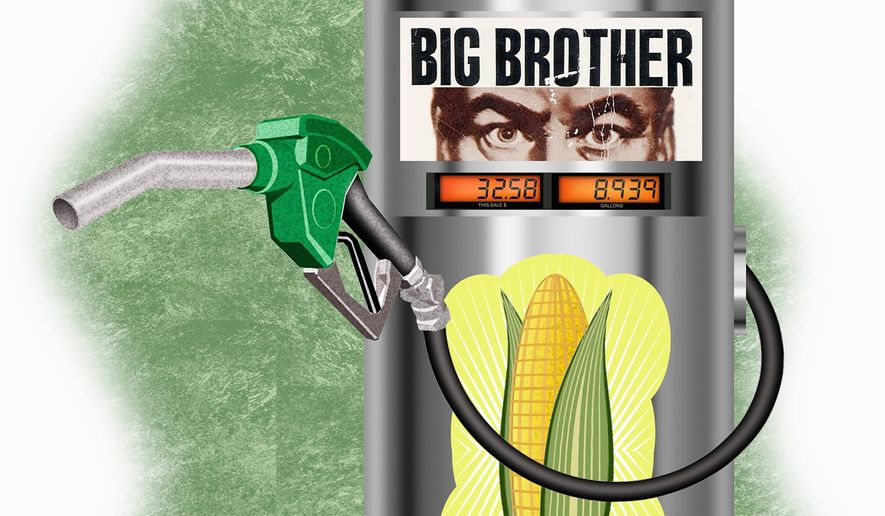OPINION:
Most gasoline sold in the United States is only about 90% gasoline. The other 10% is corn-based ethanol.
That’s because of a federal mandate established by Congress and the Bush administration in 2005 that requires a certain percentage of ethanol, determined each year by the Environmental Protection Agency, to be blended into gasoline. This despite the uncontested facts that ethanol damages internal combustion engines in cars, boats, mowers, etc., and reduces both their durability and their efficiency.
In the least surprising move ever, lobbyists for the ethanol industry have tried to expand the mandate ever since it was created. Unfortunately for them, automakers have been clear that any ethanol above 10% damages cars enough to void their warranties.
Gasoline producers and ethanol makers have been locked in this combat for a number of years. It is the Vietnam of energy policy — a pointless, costly consequence of government arrogance and overreach.
In an interesting twist, a fuel choice coalition, including some of Iowa’s largest ethanol retailers, just blocked a proposed mandate in Iowa that would have required gasoline to contain 15% ethanol.
If Iowa consumers and gas stations — who understand the importance of corn and corn-based ethanol to their state — can’t get on board with mandating an increased percentage of ethanol, why are ethanol lobbyists trying to force it on the rest of the country?
Iowa is one of the reasons for the ethanol mandate. The state is the top producer of corn and corn ethanol in the United States. Its first-in-the-nation presidential caucus gives Iowa outsized political influence and an ability to strong arm politicians into supporting ethanol.
Hawkeyes’ indifference to ethanol is not new. Iowa drivers buy far more ethanol-free gasoline than gasoline that contains 15% ethanol. In fact, the total volume of pure gasoline sold in the state is two-and-a-half times the volume of 15% ethanol blends, 85% ethanol blends, and all other high-ethanol blends combined.
Consumers in Iowa, like consumers everywhere, just aren’t that excited about buying gasoline with ethanol in it. If they were, ethanol wouldn’t need a federal mandate to require its sale and use.
Think about what it says about a product when the government has to require its use under penalty of law.
But that hasn’t stopped Iowa Gov. Kim Reynolds, House Speaker Pat Grassley (grandson of Sen. Chuck Grassley) and groups such as the Iowa Renewable Fuels Association, Growth Energy, Archer Daniels Midland, Iowa Corn Growers, Bayer, Cargill and POET.
They championed legislation this year that would impose the first-ever 15% ethanol mandates on Iowa fuel gas stations and drivers. Under the legislation, just about every gas station in Iowa would have to retool their pumps and tanks by 2026.
That would have cost $500,000 per station.
Naturally, the gas stations resisted the mandate. The stations, which have a long history of supporting ethanol expansion through Iowa and the United States, ultimately preferred to make their own decisions about how to run their businesses.
That’s not a surprise. When we ask people in surveys who should make the decisions that affect their lives, most voters tell us that they want to make their own decisions and not cede that authority to governments.
Even when the mandate in question — when the governmental decision in question — may be good for some, people still resist encroachments on their own personal sovereignty.
Iowa should be proud of its citizens who fought in this instance for their rights, chief among them the right to decide what to do with their own property. It is an example for all of us.
When issues — ranging from taxes to health care to what kind of gasoline to put in your car or sell at your gas station — are framed around “who should make the decisions involving your life,” those arguing for the expansion of government always lose. It’s just that simple.
• Michael McKenna, a columnist for The Washington Times, is the president of MWR Strategies. He was most recently a deputy assistant to President Trump and deputy director of the Office of Legislative Affairs at the White House.




Please read our comment policy before commenting.